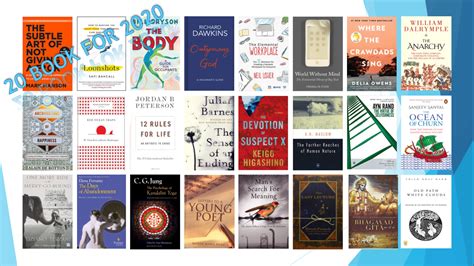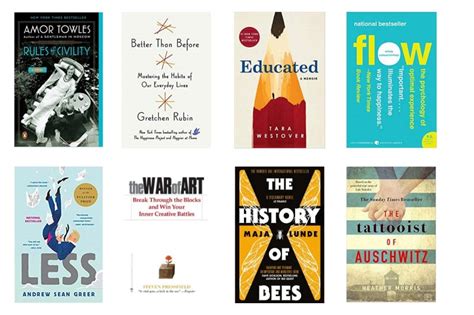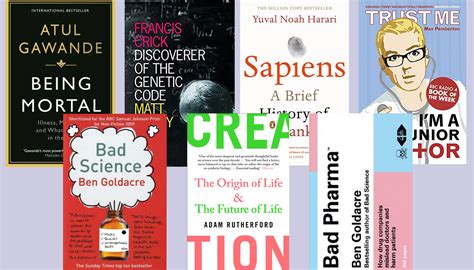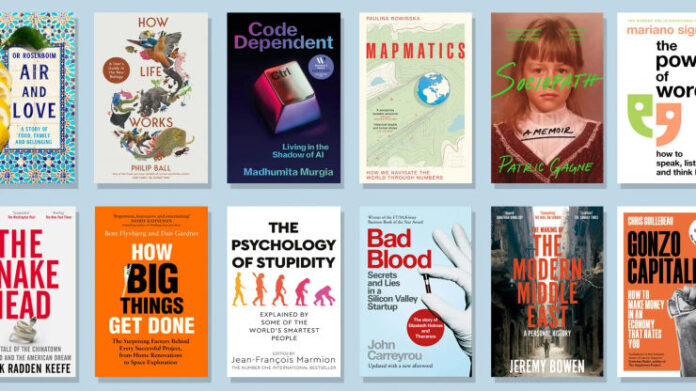Finding creative inspiration can often feel like a challenge, whether you’re a writer, artist, or simply someone looking to spark new ideas. Books have always been a powerful source of creativity, offering not only knowledge but also fresh perspectives and imaginative journeys that can awaken your own creative spirit. In this article, I’ve curated a list of the top 10 must-read books that have personally inspired me and fueled my creative thinking. Each of these works offers something unique, from thought-provoking insights to transformative storytelling, making them essential reads for anyone seeking creative growth. Join me as I explore these literary treasures and share how they’ve influenced my personal creative journey.
Explore this topic thoroughly with indog.xyz
1. Introduction to Creative Inspiration
Creativity fuels innovation, art, and personal growth. Whether you’re tackling a new project, seeking fresh ideas, or aiming to expand your imaginative horizons, creative inspiration is essential for unlocking your potential. But what ignites this creative spark? For many, books serve as a rich source of inspiration. They not only provide knowledge, but also offer fresh perspectives on the world, stimulating the mind and fostering creative exploration.
Great books have the power to transport us into diverse worlds, exposing us to different perspectives, cultures, and experiences. These encounters ignite our own creative spirit, fueling our unique artistic endeavors. This curated list serves as a personal compass, guiding you to the works that have profoundly shaped my creative journey. Each book holds invaluable lessons – from the art of storytelling to visual artistry and philosophical insights – all of which can ignite your imagination and challenge you to push your creative boundaries. In the following sections, I’ll delve into these inspiring works, explaining why they are essential reading for anyone seeking to cultivate their creative potential.

2. Criteria for Book Selection
This list features books chosen for their ability to not only ignite creativity but also provoke readers to think in novel and inventive ways. The aim was to select works that leave a lasting impression, offering more than mere entertainment or superficial understanding. I prioritized books that delve into diverse creative expressions—from storytelling and visual art to philosophical inquiry—while providing fresh perspectives applicable across various creative domains.
I sought out books that provide practical guidance, ignite motivation, and offer unique perspectives on the creative process. These books aim to help readers overcome creative roadblocks and reignite their passion. My own creative journey heavily influenced my selection, as these books have personally inspired me. They’ve encouraged me to think unconventionally, embrace risk-taking, and approach new ideas with assurance. Each book on this list holds a unique spark, and I believe it can inspire anyone pursuing their own creative endeavors.

3. Book #1: Title and Author
“The War of Art” by Steven Pressfield
Steven Pressfield’s *The War of Art* delves deeply into the internal struggles all creatives encounter. Pressfield centers his work on the concept of “Resistance,” the unseen force that hinders us from achieving our creative ambitions, be it writing, painting, or any other form of expression. This Resistance manifests in various ways, including procrastination, fear, and self-doubt. Pressfield masterfully dissects its mechanisms and offers strategies for overcoming it.
The War of Art’s inspiring nature stems from its direct, no-nonsense approach. Pressfield avoids sugarcoating the challenges of creativity, offering instead practical guidance for overcoming obstacles. His emphasis on discipline and persistence resonates throughout the book, making it an essential read for anyone who has encountered creative roadblocks.
This book has been a revelation for me. Pressfield’s exploration of Resistance has illuminated the ways I sabotage myself, and his guidance has equipped me with the tools to overcome these obstacles. It’s a succinct, inspiring read that I revisit whenever my creative spark starts to dim. For anyone embarking on their creative journey, “The War of Art” is a must-read.

4. Book #2: Title and Author
“Big Magic: Creative Living Beyond Fear” by Elizabeth Gilbert
Elizabeth Gilbert’s *Big Magic* is an uplifting and inspiring exploration of creativity and the courage needed to embrace a creative life. Gilbert encourages readers to embrace their curiosity, confront their fears, and let go of perfectionism to make room for creativity. She shares personal stories and insights emphasizing the importance of following your passion, unburdened by external judgments or the pressure to succeed.
Big Magic shines a light on Gilbert’s central message: creativity is accessible to all, not just a chosen few. She sees creative ideas as fleeting visitors, waiting for us to seize them before they move on to someone else. This playful yet profound approach to creativity offers a refreshing perspective, reminding us that the creative process needn’t be fraught with angst or struggle. Instead, it can be a source of joy and fulfillment.
This book deeply resonated with me, transforming my understanding of creativity. No longer do I perceive it as a daunting challenge, but rather as a collaborative journey with ideas. Now, I embrace fear, acknowledging its presence without letting it dictate the outcome. “Big Magic” is the ideal book for those seeking to embrace creativity and banish fear from their lives.
5. Book #3: Title and Author
“Steal Like an Artist” by Austin Kleon
Austin Kleon’s *Steal Like an Artist* is a lively and captivating manifesto on creativity that upends the conventional idea of originality. Kleon asserts that all creative endeavors are built upon the work of those who came before, urging readers to embrace the concept of “stealing” ideas – metaphorically, of course – from their inspirations. Blending humor, illustrations, and practical advice, this book functions as both a guide and a source of motivation for anyone looking to nurture their creative potential.
I appreciate *Steal Like an Artist* for its straightforwardness and ease of understanding. Kleon makes a compelling case that true creativity doesn’t require absolute originality. Instead, he encourages readers to discover their own voice by embracing influences and inspirations. He offers practical advice on connecting with other creatives and suggests ways to cultivate a unique style by drawing upon diverse sources.
“This book profoundly impacted my creative process. It liberated me from the fear of imitation, revealing that inspiration is ubiquitous. Kleon’s approach urges readers to embrace their influences and transform them into something distinctively their own. “Steal Like an Artist” is a must-read for anyone seeking to ignite their creativity and transcend the limitations of conventional thought.”
6. Book #4: Title and Author
“The Artist’s Way” by Julia Cameron
Julia Cameron’s *The Artist’s Way* is a transformative guide that helps individuals unlock their creative potential and overcome barriers to artistic expression. Originally published in 1992, this classic work continues to resonate with artists and creative souls alike. Cameron introduces the concept of “morning pages,” a daily writing practice that encourages writers to freely express their thoughts and feelings without judgment. This practice serves as a powerful tool for clearing mental clutter and fostering creative flow.
Cameron’s approach to creativity is holistic, encompassing not just the artistic side but also the emotional and spiritual elements that can obstruct creative expression. Through a series of exercises, reflections, and tools, she guides individuals towards reconnecting with their creativity, often emphasizing the importance of nurturing their inner artist.
“The Artist’s Way stands out for its focus on self-discovery and self-compassion. It inspires readers to face their fears and celebrate their individual creative paths. Personally, this book has been pivotal in my creative growth. Cameron’s wisdom and exercises have helped me nurture a deeper connection to my creativity, fostering renewed passion and confidence in my work. It is a must-read for anyone looking to rediscover their creative spark.”
7. Book #5: Title and Author
“Bird by Bird: Some Instructions on Writing and Life” by Anne Lamott
In “Bird by Bird,” Anne Lamott provides a refreshingly honest and humorous exploration of the writing process, weaving practical advice with personal anecdotes that resonate deeply with anyone embarking on a creative journey. The book’s title draws inspiration from a family story about Lamott’s brother, who was initially overwhelmed by a school project on birds, only to learn to approach it “bird by bird.” This metaphor serves as a central theme throughout the book, gently reminding readers that creativity and writing flourish when approached in manageable steps.
Lamott stresses the value of perseverance, authenticity, and accepting the inherent messiness of creativity. She candidly shares her own struggles with self-doubt and the writing process, forging a relatable story that encourages aspiring writers to overcome their fears. With her trademark humor and wisdom, Lamott offers guidance on everything from discovering your unique voice to navigating criticism and rejection.
“Bird by Bird has been a constant source of comfort and encouragement on my writing journey. Lamott’s practical advice and candid reflections have helped me navigate the highs and lows of creativity, reminding me to approach writing one step at a time. This book is an indispensable resource for anyone seeking to deepen their understanding of writing and life’s complexities.”
8. Book #6: Title and Author
“Creative Confidence: Unleashing the Creative Potential Within Us All”
by Tom Kelley and David Kelley
In “Creative Confidence,” Tom and David Kelley, co-founders of the design firm IDEO, assert that creativity is not an exclusive talent reserved for artists, but a potential everyone possesses. Through their work in design thinking, they provide practical strategies to unlock this inherent creativity. By drawing on their extensive experience, they emphasize that creativity is a skill that can be nurtured by anyone, regardless of their background or profession.
This book brims with inspiring stories and case studies, showcasing how creative confidence blossoms through practice and a willingness to embrace risk. The Kelleys urge readers to experiment, learn from missteps, and understand that creativity flourishes in an atmosphere of collaboration and open-mindedness.
“Creative Confidence deeply resonates with me, as it debunks the misconception that creativity is a gift bestowed upon a select few. The actionable advice and encouragement offered by the Kelleys have inspired me to pursue my own creative pursuits with greater confidence. This book is a must-read for anyone seeking to unlock their creative potential and tackle challenges with a renewed sense of possibility.”
9. Book #7: Title and Author
“The Creative Habit: Learn It and Use It for Life” by Twyla Tharp
In her insightful work, *The Creative Habit*, renowned choreographer Twyla Tharp delves into the routines and practices that foster creativity. Drawing upon her own experiences, Tharp reveals the rituals that have been instrumental to her artistic success. The book makes a compelling case that creativity, rather than being solely an innate gift, is a skill nurtured through disciplined habits.
Tharp lays out a series of exercises and techniques aimed at assisting individuals in unlocking their creative potential and developing personalized creative routines. She underscores the significance of preparation, organization, and perseverance, urging readers to perceive creativity as a structured process rather than an impulsive occurrence.
The aspect of *The Creative Habit* that I find most compelling is Tharp’s practical approach. She offers readers concrete steps to cultivate creativity in their everyday lives. This book has inspired me to incorporate more structured habits into my creative work, which has empowered me to explore new ideas with confidence. Tharp’s insights emphasize that nurturing our creative habits enables us to unlock our full potential and achieve our artistic goals.
10. Book #8: Title and Author
“How to Fly a Horse: The Secret History of Creation, Invention, and Discovery”
by Kevin Ashton
In his book, *How to Fly a Horse*, Kevin Ashton challenges conventional wisdom about creativity. He argues that creativity is not a mystical talent bestowed upon a chosen few, but a skill anyone can develop. Ashton, a leading figure in innovation, uses historical examples and personal stories to demonstrate how creativity is fundamentally linked to diligence, teamwork, and tenacity.
This book delves into the narratives surrounding significant inventions and artistic triumphs, uncovering the truth that creativity often emerges from gradual progress rather than instantaneous breakthroughs. Ashton underscores the vital role of cultivating a creative mindset, urging readers to accept setbacks and glean wisdom from their experiences.
Ashton’s honest yet insightful take on creativity in “How to Fly a Horse” truly resonated with me. He dismantles the myth of the “lone genius” and highlights the power of collaboration and shared perspectives. This book has ignited a renewed sense of purpose in my creative pursuits, reminding me that true innovation flourishes from unwavering dedication and the embrace of collective creativity.
11. Book #9: Title and Author
“The Creative’s Guide to Starting a Business: How to Turn Your Talent into a Career” by Harriet Kelsall
For those seeking to turn their creative passion into a thriving business, Harriet Kelsall’s “The Creative’s Guide to Starting a Business” is an invaluable resource. Drawing on her own experiences as a designer and entrepreneur, Kelsall offers practical guidance and insights specifically designed to help creative individuals navigate the often challenging landscape of business.
This book explores a comprehensive spectrum of topics, encompassing market analysis and business plan development, effective marketing techniques, and sound financial management. Kelsall underscores the crucial need to harmonize creative vision with practical business strategies, safeguarding artistic integrity while pursuing entrepreneurial aspirations.
This guide stands out because of its emphasis on fostering the distinctive traits of creative people, such as intuition, innovation, and self-expression. Kelsall urges readers to see their creativity as a key asset in the business arena.
This book has been a game-changer for me, prompting me to approach my creative work with a strategic mindset and equipping me with the tools to elevate my ideas. “The Creative’s Guide to Starting a Business” is essential reading for any aspiring creative seeking to build a fulfilling and sustainable career fueled by their passions.
12. Book #10: Title and Author
“The Lean Startup: How Today’s Entrepreneurs Use Continuous Innovation to Create Radically Successful Businesses” by Eric Ries
In The Lean Startup, Eric Ries presents a revolutionary approach to entrepreneurship that emphasizes the importance of continuous innovation and adaptability. Ries shares his insights on how startups can thrive in uncertain environments by employing a lean methodology that focuses on building a minimum viable product (MVP), testing it in the market, and learning from customer feedback.
This book champions flexibility and responsiveness in entrepreneurship. It introduces concepts like validated learning and pivoting, urging entrepreneurs to adapt to market demands instead of clinging to rigid plans. Ries highlights the vital role of creativity in this process. By embracing experimentation, iteration, and improvement, entrepreneurs can leverage real-world insights to refine their offerings.
The Lean Startup’s practical application of creativity within a business context deeply resonates with me. It motivates me to apply a mindset of experimentation and continuous improvement to my creative projects. The book’s principles have taught me to embrace uncertainty and view challenges as opportunities for innovation. The Lean Startup is an essential read for anyone seeking to navigate the complexities of entrepreneurship while cultivating a culture of creativity.
13. Overall Reflections on the List
This carefully curated list of essential reads for creative inspiration reveals a wealth of unique insights and practical advice to empower our creative journeys. Each title offers its own perspective, from Steven Pressfield’s exploration of the forces that hinder creativity to Elizabeth Gilbert’s inspiring call to embrace curiosity. These authors address the common hurdles that many creatives encounter, providing valuable guidance along the way.
Every book stresses that creativity isn’t a gift you’re born with, but a skill you can develop through consistent effort, self-discipline, and an openness to setbacks. The varied approaches—from the emphasis on habits and routines in Twyla Tharp’s work to the entrepreneurial lessons in Eric Ries’s *The Lean Startup*—demonstrate that creativity flourishes across diverse settings, from personal pursuits to professional endeavors.
These readings offer a collective reminder that creativity is a winding path, not a straight line. Exploration, experimentation, and resilience are its essential components. Through engaging with these texts, readers can discover motivation, practical strategies, and the reassuring knowledge that they are not alone in their creative journeys. This list serves not only as a catalyst for action, but also as a guide to a deeper understanding of the creative process itself.
14. Additional Recommendations
Beyond the ten essential reads featured in this article, several other titles await to enhance your creative voyage. One such book is *Creative Confidence: Unleashing the Creative Potential Within Us All* by Tom and David Kelley. This guide champions the notion that creativity is a skill accessible to all, urging readers to embrace their creative impulses with confidence.
“Another noteworthy recommendation is *The War of Art* by Steven Pressfield, which delves into the internal struggles creatives encounter and provides strategies for overcoming Resistance. It’s a compelling read for anyone grappling with self-doubt.”
For those seeking to merge creativity and mindfulness, *The Artist’s Way* by Julia Cameron offers exercises that foster self-discovery and creative growth. Meanwhile, *Bird by Bird* by Anne Lamott provides both inspiring insights and practical writing advice in a relatable and engaging manner.
Finally, consider “Making Ideas Happen” by Scott Belsky, which explores the process of effectively turning creative ideas into reality. Each of these books offers valuable insights that can enhance the original list, fostering a more comprehensive and fulfilling creative practice.
15. Conclusion and Final Thoughts
This exploration of the top ten must-read books for creative inspiration highlights the multifaceted nature of creativity. It requires dedication, resilience, and an openness to new ideas. Each book on this list offers valuable lessons and insights that can guide individuals on their creative journeys. Whether through practical strategies, personal anecdotes, or philosophical reflections on the nature of creativity, these books provide valuable tools for unlocking creative potential.
These authors remind us that creativity is not a destination but an ongoing process that can be nurtured and developed over time. By engaging with these texts, you are encouraged to embrace your unique creative voice, confront your fears, and remain committed to your artistic endeavors.
Ultimately, the journey of creativity is personal and can take many forms. Whether you’re an aspiring artist, writer, or entrepreneur, these books serve as companions along the way, offering guidance and inspiration. Dive into these works, reflect on their messages, and allow them to spark your imagination and fuel your creative ambitions.
indog.xyz
